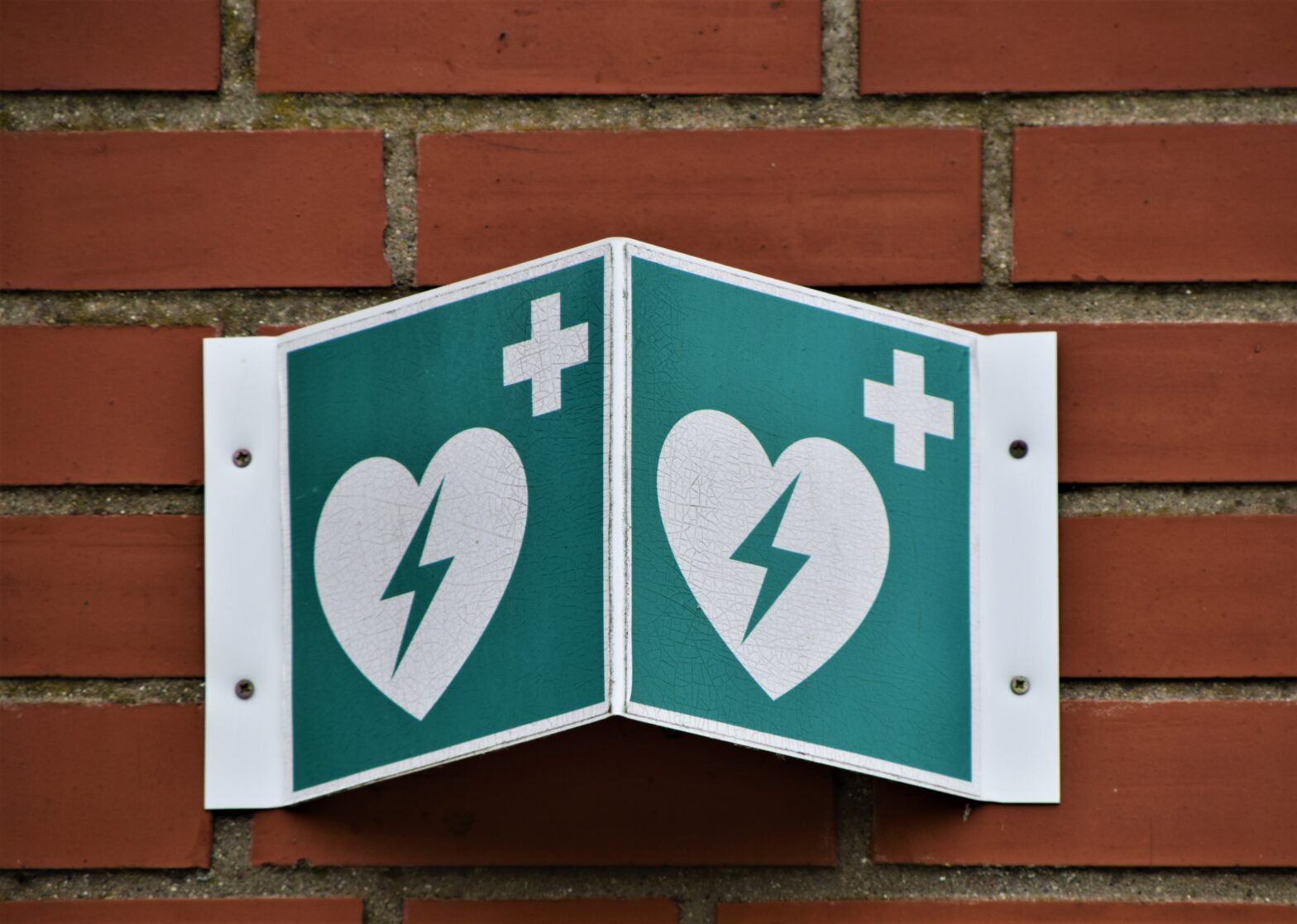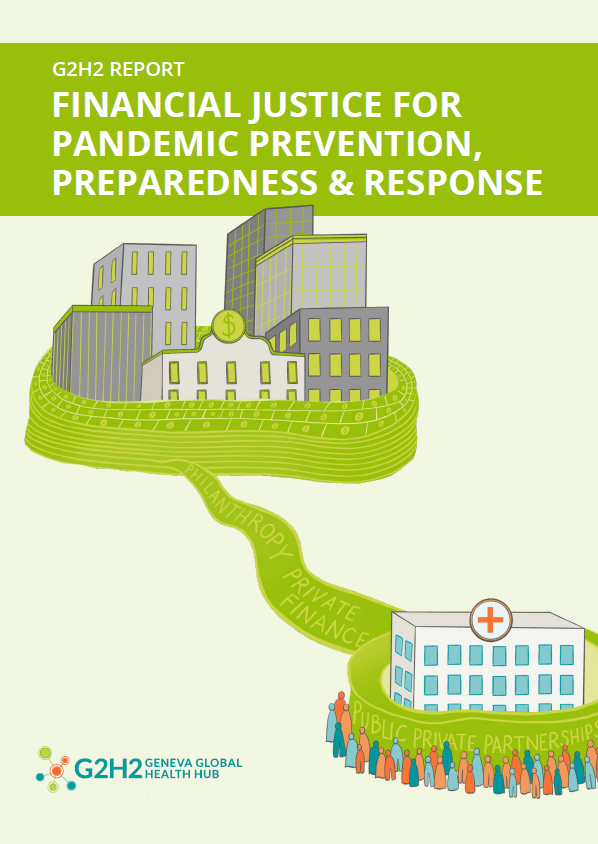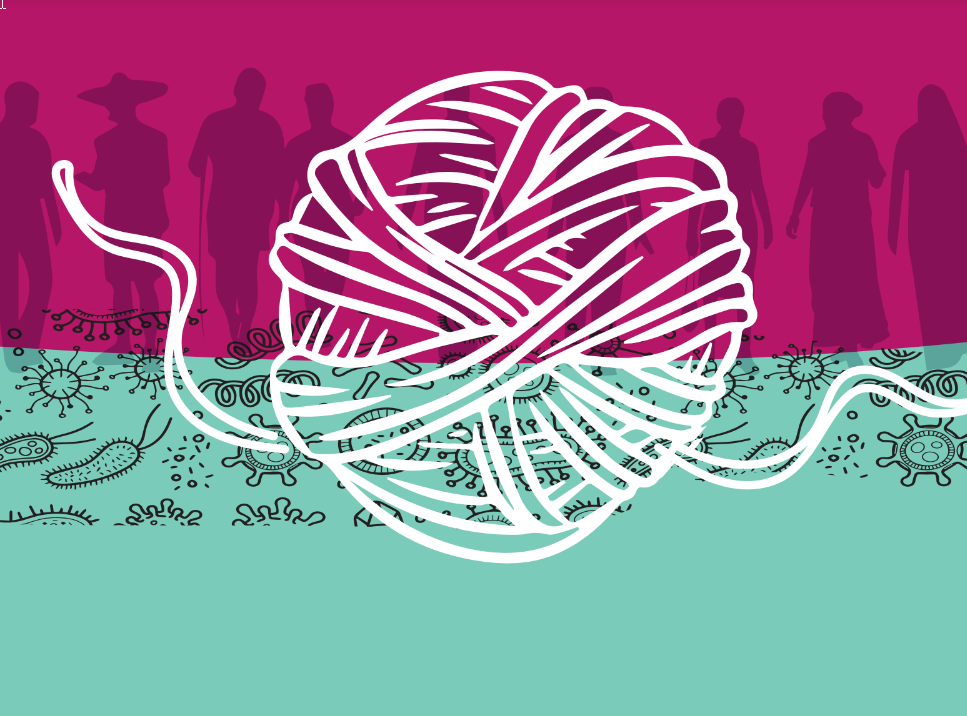Share Twitter Facebook Email Copy URL
COVID-19 and the social consequences
While the economic effects (global recession) and the political upheavals (protest against strong infection control measures such as a lockdown) received a lot of public attention, the social consequences of the Covid-19 pandemic remained somewhat underexposed. It was not only that the problem of inequality became visible in the exceptional situation of the pandemic as if under a magnifying glass. Rather, the pandemic itself, the economic crisis it triggered and the unbalanced distribution of government financial aid to companies in most countries exacerbated the problem. Despite all the assurances that these were “classless” societies with assured prosperity for all their members, a growing proportion of the population, even in countries with relatively high living and social standards, could not even cope with the loss of regular income for a few weeks.
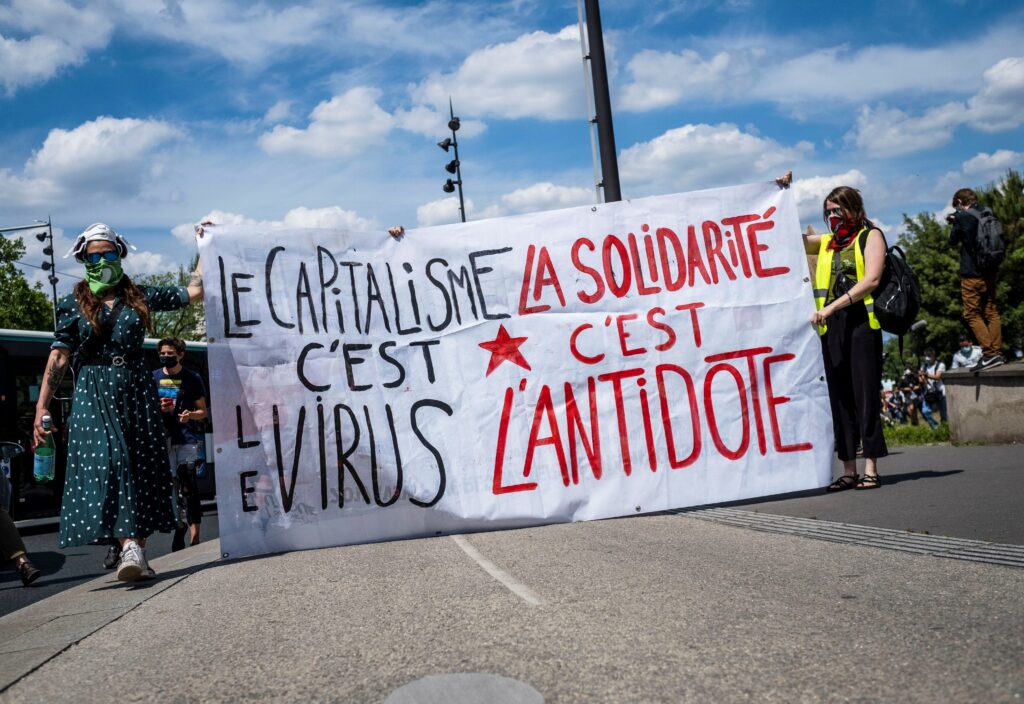
From “Rhenish” to swinish capitalism
Shortly after the unification of the FRG (Federal Republic of Germany) and the GDR (German Democratic Republic), the French economist Michel Albert referred to Germany, together with the Netherlands, Switzerland, the Scandinavian countries and Japan, as “Rhenish capitalism” and contrasted it ideally with the Anglo-Saxon or US economic model. In his 1991 book Capitalisme contre Capitalisme, Albert wrote that the final collapse of communism made the difference between the two models very clear: “The neo-American model is based on individual success and quick financial gain. The Rhineland model has its centre in Germany and is very similar to the Japanese model. Like the Japanese model, it relies on collective success, consensus and long-term forward thinking.”
The Rhenish model was fairer and more efficient, but the ultra-liberal, less egalitarian model of US capitalism would spread worldwide due to the development of modern information and communication technologies as well as the neoliberal globalisation of the financial sector, Albert predicted at the time. In fact, in recent decades there has been a change – expressed feuilletonistically – from “Rhenish” to “Swenish” capitalism. The latter is an economic and social system that tolerates brutal exploitation, drastic disenfranchisement of workers, systematic wage and social dumping, unscrupulous drudgery and mass cruelty to animals, as well as the profit maximisation of a small group of multimillionaires and billionaires. These work closely with exponents of the political and state system, which tolerates them and sets them practically no limits.
This has never been more evident than during the COVID-19 pandemic: In Europe’s largest meat factory, where tens of thousands of pigs are slaughtered, cut up and processed every day, more than 1,400 workers tested positive for SARS-CoV-2 in June 2020. Among them were especially many Polish, Romanian and Bulgarian contract workers who suffered from scandalous working and living conditions. All the people who worked at the headquarters of the Tönnies meat company in Rheda-Wiedenbrück at the time had to go into quarantine with their families because it was feared that the virus would spread to the entire population.
Epidemics as social equalisers?
In the past, epidemics have often helped to reduce inequality, even if only for a time. This was the case, for example, with the medieval plague that killed countless people of all classes in Europe from 1347 onwards. The main reason for this was, on the one hand, the fall in food, land and property prices (because there was a lack of buyers) and, on the other hand, the rise in wages (because there was a lack of labour and the bargaining position of those who remained was strengthened vis-à-vis employers).
Like the bacterial epidemics that struck Europe in the 19th century – cholera, tuberculosis and typhoid – COVID-19 has in common that it hits the immunocompromised and low-income earners the hardest. The main victims of such pandemics are the poor in society. Studies from the USA show that the African-American minority is particularly affected by COVID-19. In Brazil, too, the virus has taken root mainly in the favelas, where those who facilitate and embellish the lives of the rich and wealthy through their mostly low-paid service work live.
At first glance, it looks as if all people are the same in the face of a virus. This is true for the infectivity of coronaviruses, but not for the susceptibility and risk of infection of different population groups. The COVID-19 pandemic, for example, affected all inhabitants of the earth, but by no means all equally. Rather, they were affected quite differently depending on their working conditions, housing conditions and health status. Due to the lower life expectancy of the poor, even in wealthy, if not rich, societies, the cynical basic rule applies: those who are poor must die earlier. During the Corona pandemic, the rule was: those who are poor are more likely to die. This is because socially determined pre-existing conditions such as obesity, asthma or diabetes mellitus, catastrophic working conditions as well as cramped and hygienically unsafe living conditions increase the risk of infection with SARS-CoV-2 and a more severe course of COVID-19.
It is not the virus itself that is unjust, but a class society whose members are unequally affected. There can be no more talk of a social equaliser than of an “inequality virus”. For neither did SARS-CoV-2 cause the gap between rich and poor, nor was the new type of coronavirus responsible for the social conditions it encountered. Covid-19 has only made the existing clashes of interests more pronounced, while every lockdown and almost all government “rescue packages” for the economy have exacerbated them. It is not the virus that is anti-social, but a rich society that does too little to adequately protect its poor members from contagion and the economic dislocations of the pandemic. Neoliberalism – an economic theory, social philosophy and political civil religion that believes inequality is productive and increases prosperity – acts as a social divider.
Social polarisation intensifies: corona, poverty and wealth
Both globally and nationally, it is true that in this pandemic exceptional situation, the rich have become richer and the poor more numerous. The most financially vulnerable groups of the population, including homeless and houseless people, but also other residents of community shelters such as prisoners, refugees, temporary and seasonal workers, migrants without secure residence status, people with disabilities, those in need of care, addicts, prostitutes, the unemployed, low-income earners, minimum pensioners and those receiving transfer payments, are also the most immunocompromised.
The disruption of supply chains and distribution structures caused by the Corona virus, the loss of sales markets and the closure of shops, restaurants, hotels, clubs, cinemas, theatres and other facilities ordered by the authorities in response to the COVID 19 pandemic led to considerable economic losses for those employed there, but also to a wave of insolvencies and mass layoffs. On the one hand, short-time work and mass layoffs (e.g. in gastronomy, tourism and aviation) were not absent, on the other hand, large companies in crisis-resistant sectors even made extra profits in the Corona crisis: pharmacies, drugstores, food discounters, online mail order, parcel and delivery services, the digital economy and the pharmaceutical industry.
Contact bans, curfews and lockdowns destroyed the already fragile livelihoods of the poorest (beggars, bottle deposit collectors and street newspaper vendors), as a lack of passers-by and fear of infection sometimes led to a complete loss of income. The financial burden of transfer recipients, minimum pensioners and refugees increased further due to the closure of charitable institutions, soup kitchens and social department stores.
Although share prices temporarily plummeted on all stock exchanges around the world after the outbreak of the COVID 19 pandemic, small shareholders in particular suffered dramatic losses, as they are usually prone to panic reactions and hasty selling. Hedge funds and financial conglomerates like BlackRock, on the other hand, even successfully bet on falling share prices with short sales and earned from the losses of small investors. Large investors also took advantage of the favourable situation to buy at relatively low prices and profited from the fact that the price trend soon pointed upwards again in anticipation of government economic stimulus programmes.
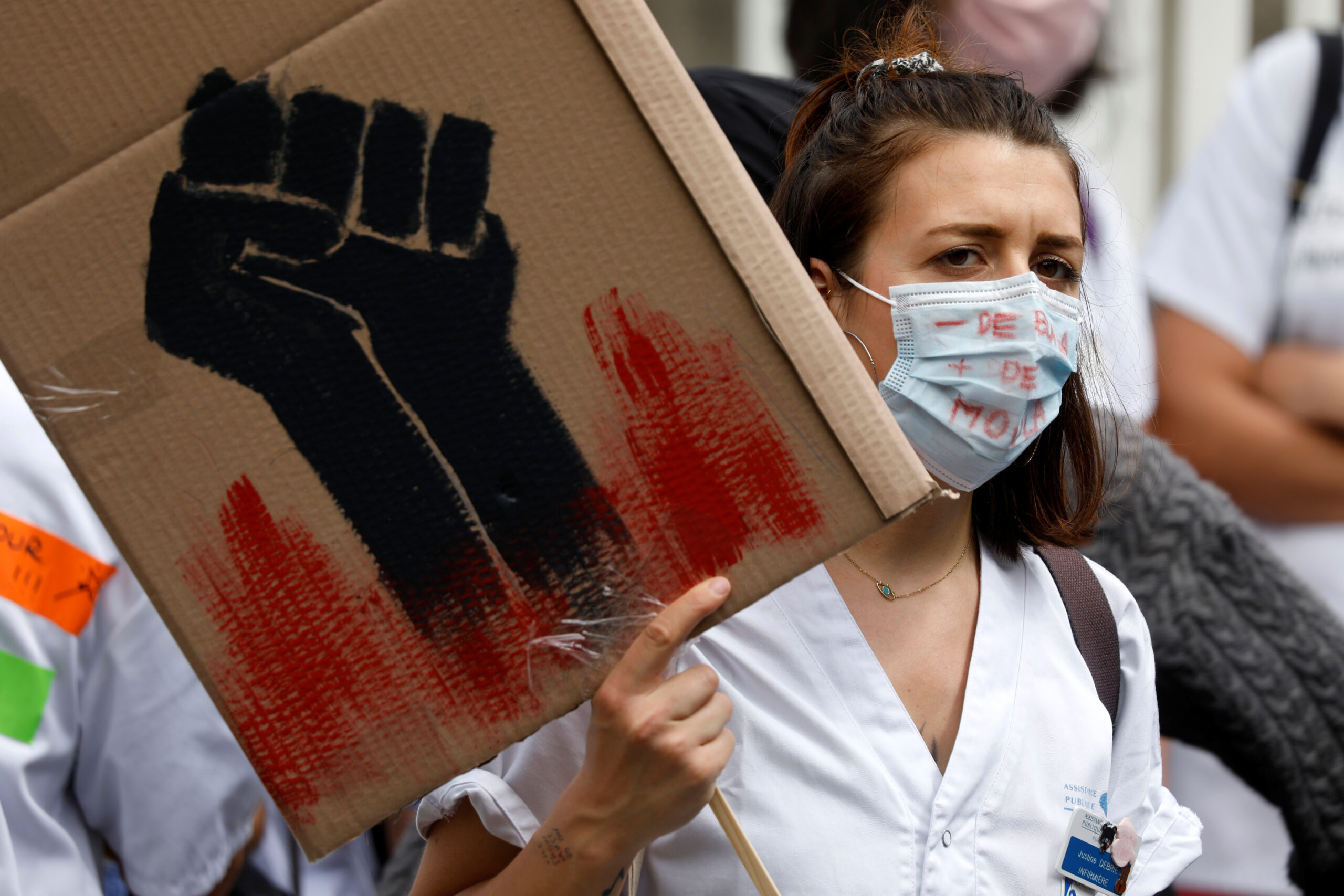
Summary and conclusions
In the face of the coronavirus known as SARS-CoV-2, all people are equal in terms of infectivity. It is only because the state of health, the living conditions as well as the income, wealth and housing conditions are in part very different that the risks of infection are also very unequally distributed between the social classes and strata.
While the expansion of the digital infrastructure is likely to continue after the positive experiences of many companies with home offices, video conferences and online workshops during the lockdown, the lobby for the expansion of the social, educational and care infrastructure as well as the expansion of public services in the care and health sector is less politically influential. However, if the pandemic, the lockdown and the corona-induced recession leave deep traces in the collective memory, as many predict, they should trigger a sustained public debate on socio-economic inequality and how to reduce it, especially as the problem intensifies in the wake of these events.
If the risk of infection, disease and death in and after the COVID-19 pandemic is no longer to depend decisively on material resources, the capitalist economic and social system must be overcome. The Corona crisis has taught us that the production, consumption and lifestyle of pandemic capitalism is neither sustainable nor suitable for preventing the impending climate catastrophe through greenhouse gas emissions.
Prof. Dr. Christoph Butterwegge taught political science at the University of Cologne from 1998 to 2016 and most recently published the book “Ungleichheit in der Klassengesellschaft” (“Inequality in Class Society”, Cologne: PapyRossa publisher).

